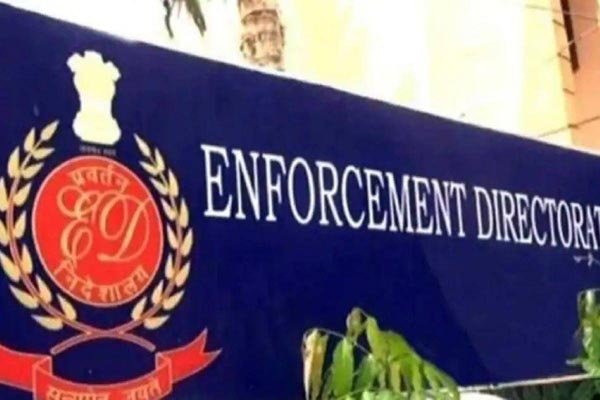The Enforcement Directorate (ED) has taken a significant step forward in the Delhi Jal Board money laundering case by filing its first chargesheet, according to sources briefed by news agency PTI on Saturday.
The chargesheet, reportedly spanning about 8,000 pages, was lodged in connection with alleged irregularities within the Delhi Jal Board (DJB). It was submitted before a special Prevention of Money Laundering Act (PMLA) court in Delhi on March 28, as disclosed by the sources.
“The court has listed the matter for April 1 for taking cognisance of the chargesheet,” the sources added. In the detailed chargesheet, the ED has named four individuals and one company as “accused” in the case. Among them are former Delhi Jal Board chief engineer Jagdish Kumar Arora, contractor Anil Kumar Agarwal, former NBCC general manager DK Mittal, Tejinder Singh, and NKG Infrastructure Limited.
The ED’s allegations suggest a complex scheme of corruption, wherein bribe money generated from irregularities in a contract issued by the DJB was purportedly funneled as election funds to the ruling Aam Aadmi Party (AAP) in Delhi.
The ED is seeking the prosecution of the accused under the provisions of the Money Laundering Act. Additionally, it has indicated the possibility of filing supplementary complaints in the future, underscoring the ongoing nature of the investigation.
This development comes amid heightened scrutiny of political funding and allegations of corruption, particularly in the context of elections. The chargesheet marks a significant milestone in the ED’s efforts to unravel the alleged money laundering network and hold those involved accountable.
The Delhi Jal Board case has garnered considerable attention, especially due to its implications for political transparency and accountability. The ED’s chargesheet is expected to shed further light on the intricate web of financial transactions and illicit activities allegedly orchestrated within the corridors of power.
As the case progresses, it is likely to fuel broader debates surrounding ethics in governance, the role of regulatory agencies, and the need for stringent measures to combat corruption. The ED’s actions underscore the importance of upholding the rule of law and ensuring accountability at all levels of government.
Moving forward, all eyes will be on the legal proceedings as the chargesheet undergoes judicial scrutiny. The outcome of this case could have far-reaching implications for the political landscape in Delhi and beyond, shaping public perceptions and electoral dynamics in the process.













